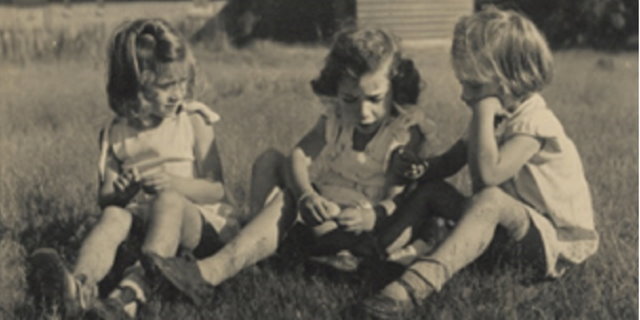Drillingsberichte Edition
www.ru.nl/en/research/research-projects/drillingsberichte-0
The Drillingsberichte are a collection of 155 letters written by the German-speaking Jewish doctor Felix Oestreicher (1894–1945). The letters document the upbringing and development of his three young daughters Beate (1934–1997) and the twins Helli (*1936) and Maria (1936–2010) during the years 1937–1943. They were initially intended to keep distant relatives informed about the girls’ growth and development.
Following the annexation of Austria by Nazi Germany in 1938, the Oestreicher family moved from Karlsbad in former Czechoslovakia to the Netherlands. In 1943, the Oestreicher family was deported from the Netherlands to the Bergen-Belsen concentration camp, except for Helli, who had gone into hiding with a Dutch family. In April 1945, as the Allies advanced, the Nazis evacuated the camp, transporting the deportees further east.
After a harrowing journey, their train was liberated by the Red Army near the village Tröbitz. Felix Oestreicher and his wife Gerda Oestreicher-Laqueur, however, died of typhus shortly after their liberation. Beate und Maria Oestreicher survived and returned to the Netherlands where they were eventually reunited with Helli.
A research team at Radboud University Nijmegen, led by Prof. Paul Sars and Dr. Sabine Jentges, with the assistance of Dr. Claudia Daiber, has edited and digitized the letter reports, making them publicly accessible.
The inclusion of the Drillingsberichte within the project presentation and the search functionalities of the PORTAL OF JEWISH HISTORY ONLINE increases the accessibility and thus the opportunity doing research.
If you have any questions about this research project or would like to participate, please feel free to contact us (claudia.daiber@ru.nl).

- Edition
-
- Status
- Finished
- Language
- German
- Provider
-
Radboud Institute for Culture & History
- Cooperation Partners
-
Radboud University Library
- Search Results
- display